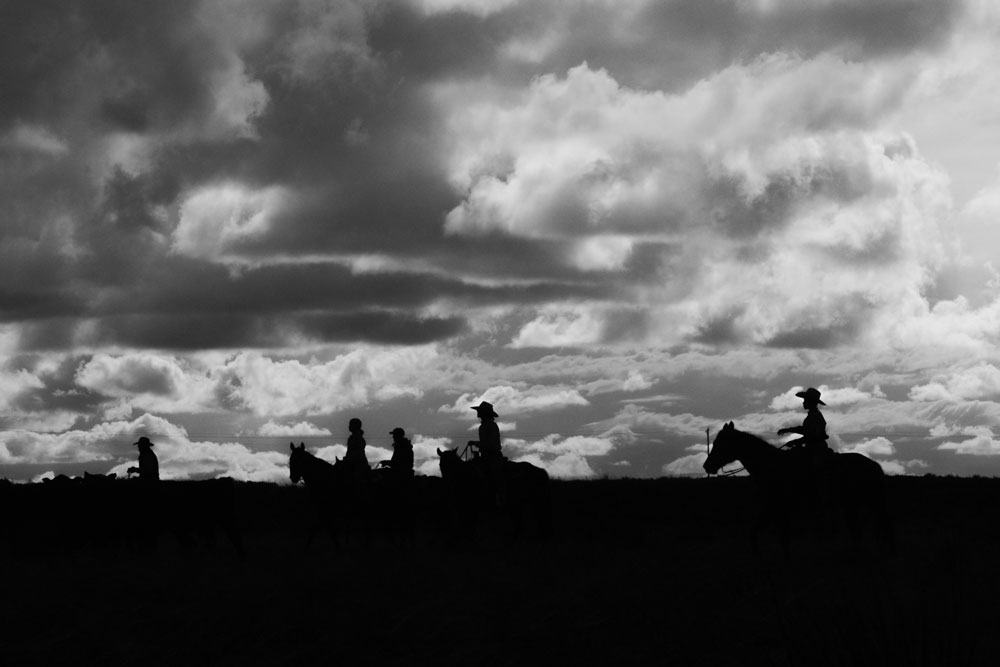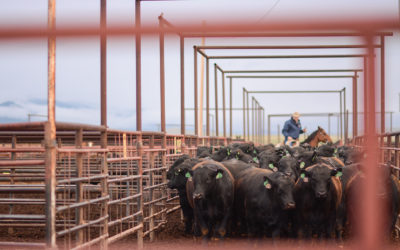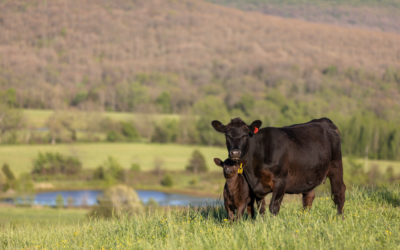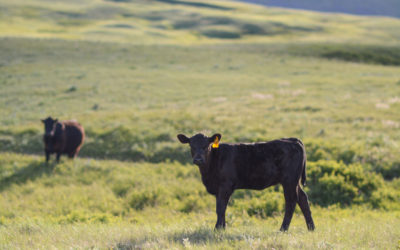
Live and learn
by Miranda Reiman
I see all kinds.
In my travels across the country I visit many ranches that have been in the same family for a century or at least several decades. I always enjoy hearing what prior generations of cattlemen have passed on to the current stewards.
Challenging times usually teach many lessons, so there’s tried-and-true advice and even a few old wives’ tales thrown in for good measure.
When it comes to a producer’s method of teaching, there are all kinds, too.
There are the moms and dads who carefully show the steps in a process and explain why they’re doing it.
The “hang on and follow along” types instruct by doing. We’ll call them the role models. For that group, “watch this” makes more of an impact than any dissertation on the goals for the day.
Although I don’t witness a lot of hollering on a story trip, I do hear a few tales told in laughter later about the tense moments. For some, teaching comes fast and loud.
There are the “figure it out for yourself” types who think giving an impressionable mind a problem to solve will solidify learning.
It seems many producers can fit any of those classifications, depending on the scenario.

Sometimes even the most patient find they don’t always have the luxury of explanation. If there’s a laboring mama-to-be that needs help, they switch to “do as I do” mode. Between hurried, breathless commands and head nods, the student learns.
My moments of “figure it out” were usually based on necessity. Growing up, I remember the first time the Bobcat wouldn’t start for afternoon chores and no one with more experience than I was around the farmyard just then. I thought I’d seen that battery charger used to jumpstart it before. I assessed the situation and did what seemed logical.
Today, I’d Google such a predicament. Both are chances to learn by problem solving.
There are all kinds. And no kind of teaching is the wrong kind…unless you’ve got people who need to learn and you’re not teaching them anything at all.
Sadly, I see that, too. There was that time I asked a middle-aged rancher about his breeding decisions, and he urged me to talk to his elderly dad, because “he buys all the bulls.” Or when I talk marketing strategy and they say, “Oh, mom handles all that. I really don’t know.”
I love it when everybody has their own area of expertise and can contribute to a farm or ranch business, but I also think it’s important to step back and make sure you’re imparting that knowledge to the generation that’s going to take the reins someday.
If you’ve got breeding goals, talk about it together or take that daughter or son along to the bull sale so they see you in action. Give them a sale book and some expected-progeny-difference targets, and have them circle their favorites.
As you run cattle through the chute and sort for phenotype, note the reasons one female is a keep and another is cull. Ask for their opinions.
If you’re trying to hit a certain marketing window or want to score repeat business, get them involved in making plans. If you’ve set your herd up to be super maternal or high grading (or hopefully both), this is your chance to see that legacy continue.
Because someday all of your life’s work will likely be in the hands of that generation.
Much of their fledgling or flying success will depend on how good you were as a teacher.
Next time in Black Ink®, Nicole Erceg will discuss what you can’t do with an empty cup.
you may also like
Beginning again
Life is about phases. Some occur just once and some are on repeat. We tend to spend a lot of time and energy trying to build momentum to summit the final arc of a cycle. When it ends, space is created for something new to start, and off we go again.
Lifelong learner
Perhaps the hardest lesson I’ve learned is this: learning is a daily chore. After all, learning is a lifetime process. It’s easier when motivated, but sometimes it takes discipline and a little conversation.
Cultivating growth
Humans have a built-in desire to grow. But it’s not something that just happens. We must have a curiosity about us – a will and work ethic for the growing.



